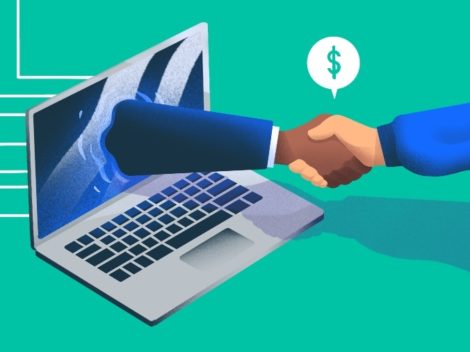Many wondered after the collapse of Silicon Valley Bank and with interest rates continuing to creep up, if the debt market would turn sour for startups.
It hasn’t turned, but seems to have stagnated.
Despite some recent debt rounds from well-known startups that garnered headlines, VC-backed startups in the U.S. have been raising about $5.5 billion on average through the last few quarters, according to Crunchbase data — which tracks publicly announced debt financing rounds. (It is important to note companies sometimes do not announce debt raises or the exact ratio in equity and debt mixed rounds.)
Search less. Close more.
Grow your revenue with all-in-one prospecting solutions powered by the leader in private-company data.
The recent quarterly numbers are below the second quarter of last year, when the market seemed to hit a high of nearly $11 billion in debt financings right as the venture market was cooling.
However, there have been a handful of eye-catching deals announced this month from well-funded private companies. Those include:
- Last week, Oakland, California-based data startup Fivetran received a $125 million loan from Vista Credit Partners, the credit arm of Vista Equity Partners. In 2021 — a very different time in the venture funding world — the company raised $565 million in equity at a $5.6 billion valuation.
- Less than two weeks ago, Foster City, California-based fintech Tipalti raised what has been reported as $150 million in credit from JPMorgan Chase Bank and Hercules Capital, which specializes in venture debt. Back in 2021, the startup raised a $270 million Series F funding led by G Squared at a valuation of $8.3 billion.
- Earlier this month, Austin, Texas-based 8fig raised a $140 million Series B — which has been reported as $40 million in equity and $100 million in a credit facility. The round was led by Koch Disruptive Technologies and included Silicon Valley Bank, now a division of First Citizens Bank.
Good market, bad market?
Many expected to see an uptick in debt and credit deals as venture dollars started to dry up. But then, of course, interest rates also continued to rise and then just two months ago Silicon Valley Bank — the preeminent bank for startups — dramatically collapsed.
The bank had about $74 billion worth of loans on its books, with about 20% of that being from venture debt, according to those in the industry. Many thought its fall could mean raising debt — especially popular venture debt — would become much harder for many startups and private companies.
However, considering SVB’s collapse is still relatively fresh, it may be too early to fully contextualize its affect. Some recently announced debt raises such as Fivetran’s were completed before the fall of the bank.
“Silicon Valley Bank was the most prolific financing partner to the growth ecosystem, and the full impact of its failure on the broader technology and financial markets remains unknown,” said David Flannery, senior managing director and president of Vista Credit Partners.
However, Flannery said in the wake of SVB’s collapse his firm has seen a mentality shift among management teams about the certainty and availability of venture capital and growth equity moving forward, which is creating more opportunities for alternative financing.
“This is particularly true for lenders backed by a long-term capital base who understand how later-stage software companies operate and can offer tailored debt solutions that align with a company’s growth needs,” Flannery said.
Looking at debt
Later-stage startups do seem to be looking at picking up debt right now as the market continues to shift.
Fivetran had never really considered debt before its raise was announced last week, said George Fraser, CEO of Fivetran. However, the decision was obvious when considering market conditions, he said.
“The macro environment is just very uncertain,” Fraser said. “No one knows where multiples are for late-stage companies right now.”
That uncertainty doesn’t affect just the company, but also its customers, Fraser reminded, adding to the importance of being “extremely well-capitalized.”
Flannery added his firm witnessed record credit deployment of more than $500 million through its direct lending platform during the first half of 2023, including to private companies like Fivetran, Arcadia, Demandbase and Deepwatch.
“Later-stage software companies are increasingly turning to credit and structured debt solutions to continue to drive growth and play offense pending a broader market recovery and the IPO market reopening,” Flannery said.
Related reading
- Private Credit Funds, Banks Will Aggressively Push To Fill SVB’s Role — Likely At Higher Rates
- SVB’s Demise Cools An Already Chilly Climate For Startup Funding
Related Crunchbase Pro query
Illustration: Dom Guzman

Stay up to date with recent funding rounds, acquisitions, and more with the Crunchbase Daily.





![Illustration of a man sitting on a huge pile o' money. [Dom Guzman]](https://news.crunchbase.com/wp-content/uploads/Giant_Funding-470x352.jpg)




![Illustration of remote meet on cellphone, unicorn chess piece and money. [Dom Guzman]](https://news.crunchbase.com/wp-content/uploads/business-strategy-300x168.jpg)
![Illustration of toast with $ toasted in. [Dom Guzman]](https://news.crunchbase.com/wp-content/uploads/Forecast-dollar-sign-300x168.jpg)
67.1K Followers